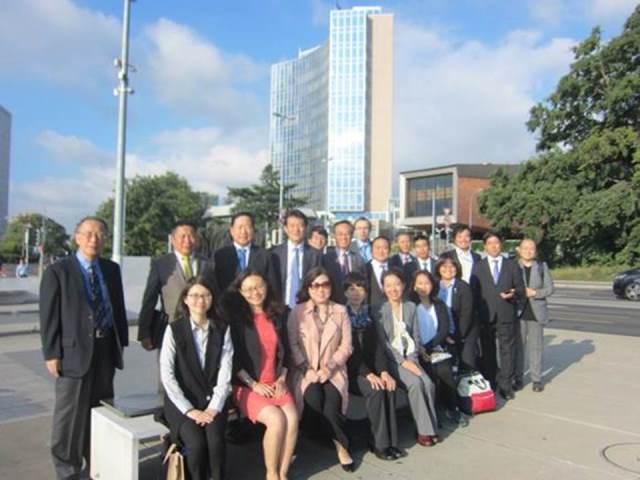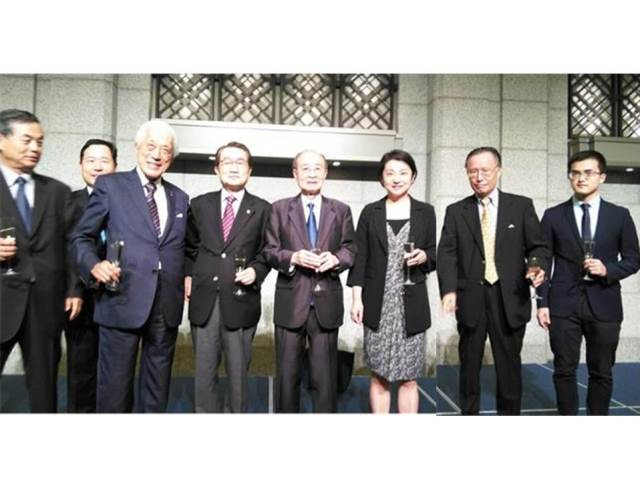East Asian Scholars and Practitioners visited World Intellectual Organization (WIPO), Permanent Mission of the Republic of Korea, International Telecommunication Union (ITU), and World Trade Organization (WTO) and held dialogue with their senior officials.
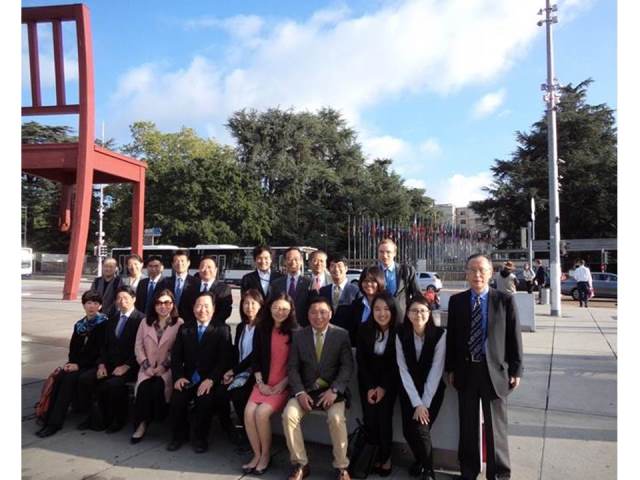
Geneva Dialogue II – Photo Album: Day 1 of theSecond Geneva Dialogue of East Asian Scholars with Senior Officials of the United Nations and International Organizations (02/09/2019)
10:00 Opening Session Director-General H.E. Ms. Tatiana Valovaya, UN O…
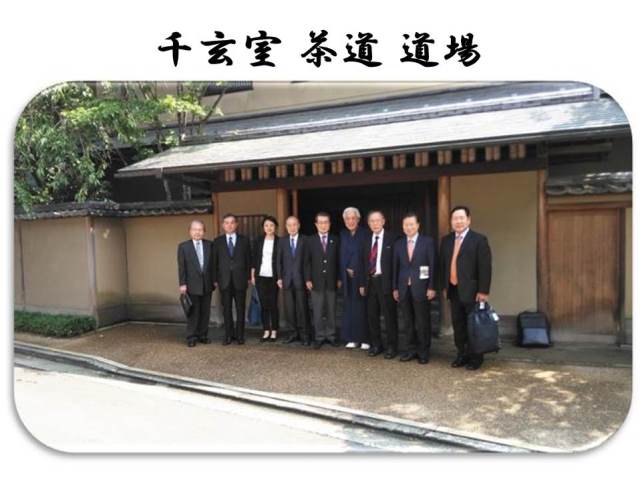
Heads of Delegations from UN Associations of China, and ROK and host country Japan visit the Tea Ceremony Dojyo at the end of their two-day conference in Tokyo. (26/08/2019)
Grand Master Sen Zenshu held a demonstration tea ceremony and explained its significance including the basic philosophy of Sado based on its principle of four forms: “Wa, Kei, Sei, Jyaku”. He explained the philosophy developed by the founder of the way of tea, or chado, SEN no RIKYU (1522-91), who perfected the style of chanoyu based on the wabi aesthetic and elevated chanoyu into the way of tea aimed at purifying the atmosphere to harmonize the relationship between the host and guest.
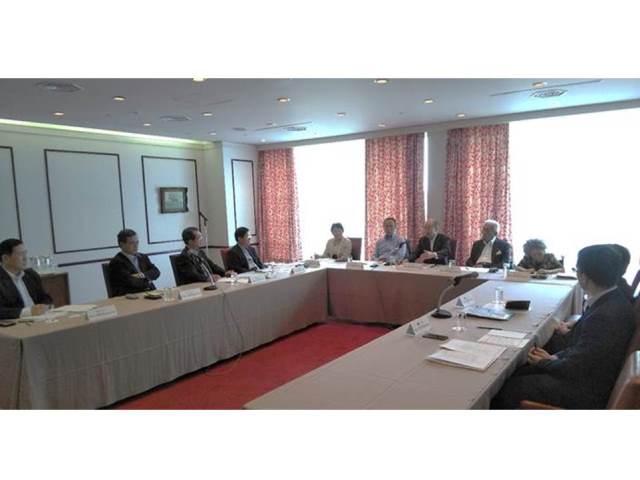
UN Associations of Japan, China and Republic of Korea meet at Hotel Okura in Tokyo. (25/08/2019)
The event was hosted by President Genshitsu Sen, Urasenke Grand Master of Japanese Tea School, and participated by Vice President Yasushi AKASHI, Former UN Under-Secretary-General, Board Director Momoyo ISE, Executive Director for Academic Exchange Sukehiro Hasegawa, and Board Member and Vice President of Sophia University Miki SUGIMURA of UN Association of Japan. Also participated are Deputy Director-General Wang Ying and Program Officer You Bai Shun of UN Association of China; and Acting President and Ambassador Ho-Jin Lee, and three Vice Presidents of UN Association of the Republic of Korea, Former Ambassador to the Netherlands Jong-moo Choi, Vice, President of the Korea Institute for Maritime Strategy Seo-Hang Lee and Professor Heung-soon Park, Former President of the Korean Academic Council on the United Nations and Member of the Board of Academic Council on the UN System (ACUNS).
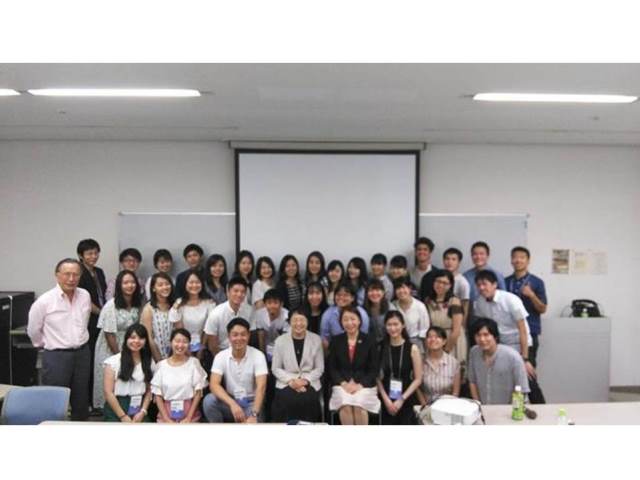
JCK Youth Forum Preparatory Workshop held for 40 Participants from Japan (06/08/2019)
UN Association of Japan held Model UN sessions and preparatory lectures and discussions conducted by Vice President Yasushi Akashi, Professors Akio Takahara of University of Tokyo, Takaaki Mizuno of Kanda University, Miki Sugimura of Sophia University and Hiroko Akizuki of Asia University. Model UN sessions were organized by students from the Tokyo International University (Reported by Moe Hino).
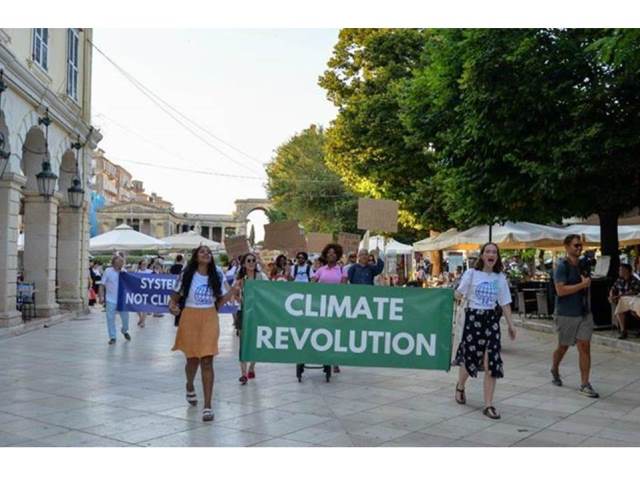
Young activists from 28 countries call for Climate Democracy that includes UN people’s parliament and a court system for international environmental crimes. (26/07/2019)
Following the 9-day training and meetings organized by the Center for UN Constitutional Research (CUNCR) in Brussels on the 19th and 20th of July, young activists held the conferences from the 22nd to the 26th first in Corfu and then in Epirus where parliamentarians and academics joined young activists in adopting the “Declaration of Epirus.”
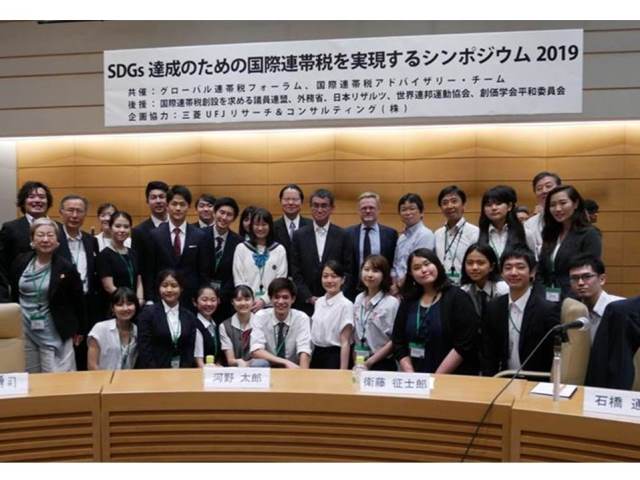
Foreign Minister Taro KONO joined the participants of a symposium on global solidarity levy and greeted reiterated his conviction that financial resources be generated by levying financial transactions for achievement of the SDGs (24/07/2019)
A symposium to discuss international solidarity levy was held at the international conference hall in the international conference hall of the First Building of the House of Representatives for which Mr. Matakana TAKEMOTA performed as the general master of ceremony. The symposium considered several measures to secure the necessary funds for achieving the Sustainable Development Goals (SDGs) set by the United Nations for 2030. The opening remarks by Chair Seishiro ETO and Vice Chair Ichirou AISAWA was followed by a commemorative speech by Professor Emeritus Hiroshi Kaneko. GPAJ President Sukehiro HASEGAWA, Secretary-General Masakuni TANIMOTO and Auditor Ken INOUE participated in the symposium.
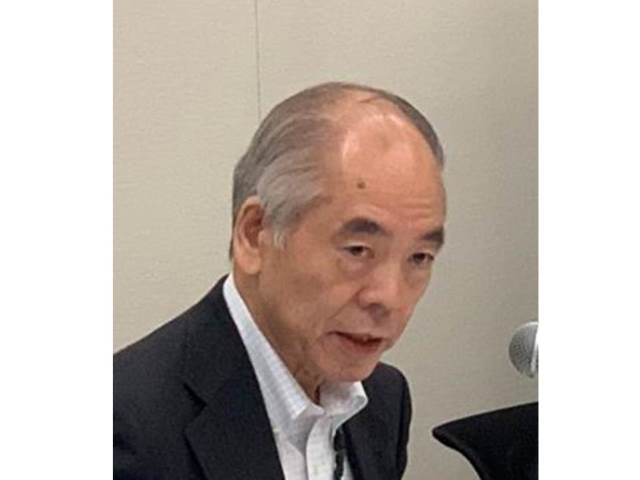
Japan Commission for Global Governance holds its first meeting on UN Reform (23/07/2019)
Keynote Lecture was delivered by Takahiro SHINYO, Professor of Kwansei Gakuin University and Former Ambassador and Deputy Permanent Representative of Japan to the United Nations in New York; Panel Discussants were Professor Kiyotaka KAWABATA of Fukuoka Women’s University and Ms. Chikako HIROSE, former director of the United Nations Center for Regional Development in Nagoya.
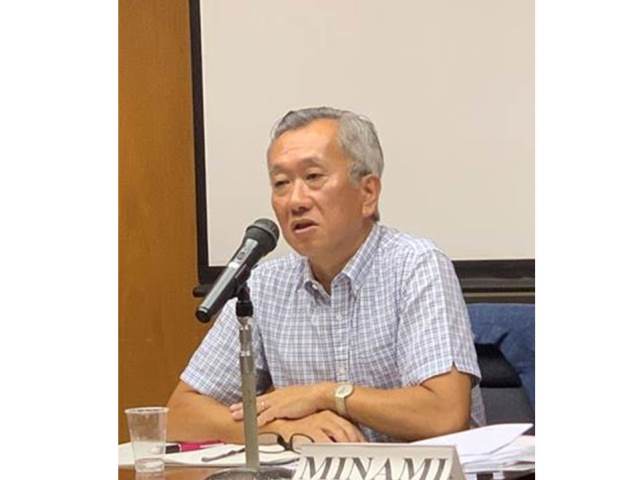
Ambassador to Timor-Leste Hiroshi MINAMI explains the local political situation at the 41st Meeting of the Global Peacebuilding Association of Japan (20/07/2019)
Former Ambassadors Iwao KITAHARA and Yoshitaka HANADA joined in the lively discussions. (Reported by Taketo Yamaguchi)

